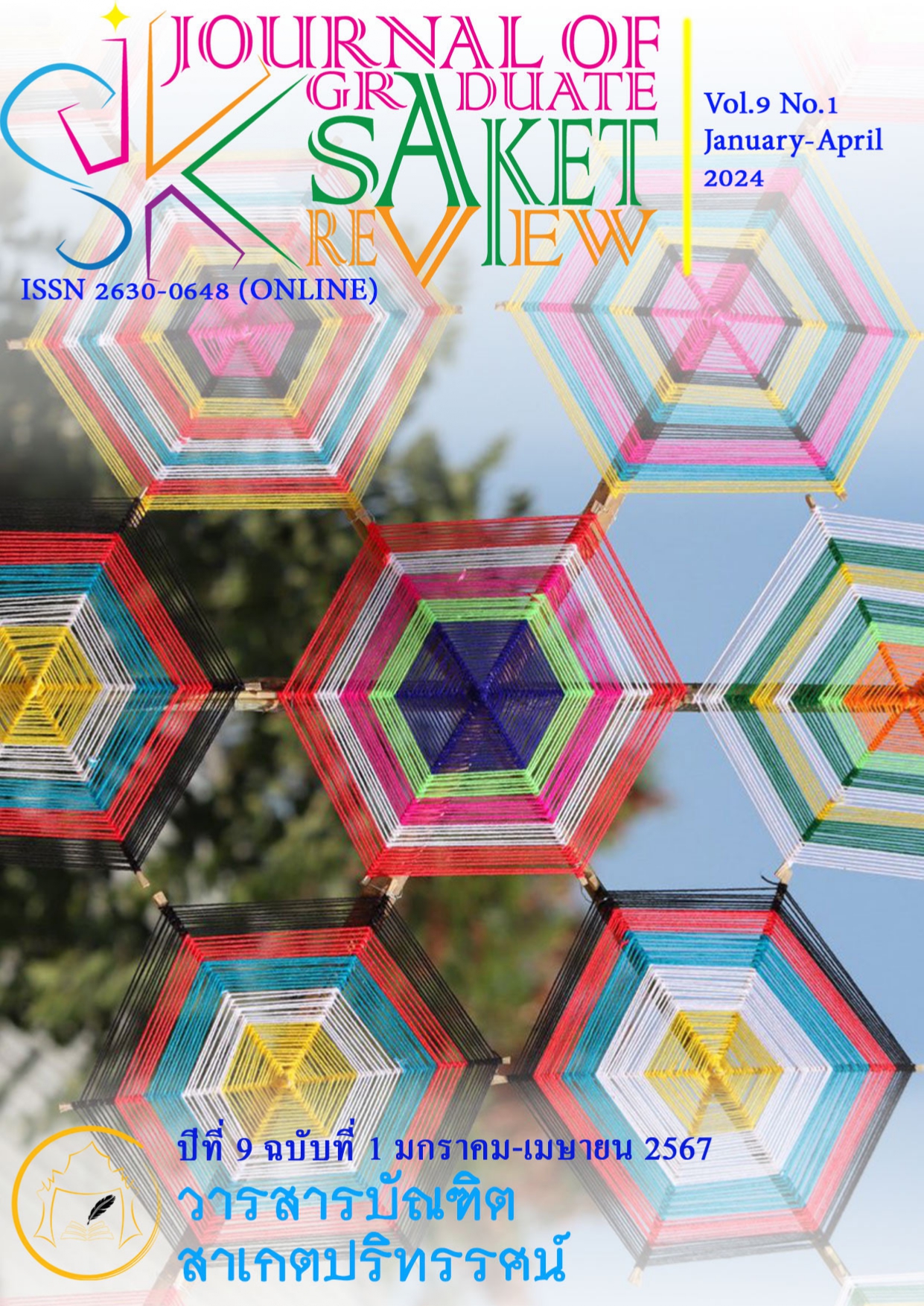การนำหลักสติในพระพุทธศาสนามาช่วยในการไกล่เกลี่ยข้อพิพาทในศาลยุติธรรม
Main Article Content
บทคัดย่อ
คดีความที่เป็นคดีแพ่งที่มีการฟ้องร้องกันต่อศาลที่เป็นคดีพิพาทกันนั้นก่อนจะมีการสืบพยานจะมีผู้ประนีประนอมประจำศาลทำหน้าที่ไกล่เกลี่ยข้อพิพาทก่อนทุกคดีในกรณีที่คดีที่คู่ความทั้งสองฝ่ายแสดงความประสงค์ที่จะไกล่เกลี่ย แต่ในส่วนที่คู่ความไม่ประสงค์จะไกล่เกลี่ยก็ไม่สามารถที่จะบังคับให้ไกล่เกลี่ยได้เช่นกัน ส่วนใหญ่แล้วจะพบว่า ปัญหาระหว่างคู่ความนั้นนอกจากจะเป็นเรื่องของคดีที่นำมาฟ้องร้องแล้ว ยังมีเรื่องของจิตใจ อารมณ์ ทิฎฐิ และความไม่พอใจกัน ของคู่ความจนนำมาสู่การพิพาทกันในคดีในศาล ฉะนั้น ผู้ไกล่เกลี่ยต้องใช้หลักสตินำมาใช้ในการค้นหาปัญหาข้อพิพาทที่แท้จริงของคู่ความให้ได้เสียก่อน แล้วจึงจะดำเนินการไกล่เกลี่ยต่อไปได้ถูกทางโดยในระหว่างขั้นตอนการไกล่เกลี่ยจนกระทั่งหาทางออกและแก้ปัญหาให้กับคู่ความได้นั้น จะต้องใช้หลักสติตลอดเวลาเพื่อควบคุมอารมณ์ ควบคุมสถานการณ์ในระหว่างการไกล่เกลี่ยจนกระทั้งการไกล่เกลี่ยได้ผลสำเร็จหรือไม่สำเร็จก็ตาม โดยผู้ไกล่เกลี่ยนั้นต้องมีคุณสมบัติที่สำคัญดังนี้รวมอยู่ด้วยเช่นความเป็นกลาง ความอดทน ความซื่อสัตย์ ความสามารถในการเจรจาและใช้สติปัญญาในการนำมาแก้ปัญหาหาทางออกให้คู่ความให้ได้
Article Details

อนุญาตภายใต้เงื่อนไข Creative Commons Attribution-NonCommercial-NoDerivatives 4.0 International License.
เนื้อหาและข้อมูลในบทความที่ลงตีพิมพ์ในวารสารบัณฑิตสาเกตปริทรรศน์ ถือเป็นข้อคิดเห็นและความรับผิดชอบของผู้เขียนบทความโดยตรงซึ่งกองบรรณาธิการวารสาร ไม่จำเป็นต้องเห็นด้วย หรือร่วมรับผิดชอบใด ๆบทความ ข้อมูล เนื้อหา รูปภาพ ฯลฯ ที่ได้รับการตีพิมพ์ในวารสารบัณฑิตสาเกตปริทรรศน์ ถือเป็นลิขสิทธิ์ของวารสารบัณฑิตสาเกตปริทรรศน์ หากบุคคลหรือหน่วยงานใดต้องการนำทั้งหมดหรือส่วนหนึ่งส่วนใดไปเผยแพร่ต่อหรือเพื่อกระทำการใด ๆ จะต้องได้รับอนุญาตเป็นลายลักอักษรจากวารสารบัณฑิตสาเกตปริทรรศน์ ก่อนเท่านั้น
เอกสารอ้างอิง
เกริก พิสัยพันธ์. (2022). สติปัฏฐาน 4 กับการพัฒนาคุณภาพชีวิต. มหาวิทยาลัยมหาจุฬาลงกรณราชวิทยาลัย, ประเทศไทย.
ชลาธร เทียนส่องใจ. (2553). การเจรจาไกล่เกลี่ยคนกลางเชิงพุทธ หลักการและเครื่องมือสำหรับการจัดการความขัดแย้ง. วิทยานิพนธ์ปริญญาพุทธศาสนาดุษฎีบัณฑิต. มหาวิทยาลัยมหาจุฬาลงกรณราชวิทยาลัย.
ทรงกรด มั่นสิงห์, (2563). ปุจฉา-วิสัชนา เล่ม 1 : เริ่มต้นปฏิบัติธรรม. กรุงเทพมหานคร: น้ำการพิมพ์.
บรรจบ บรรณรุจิ. (2535). ปฏิจจสมุปบาท. กรุงเทพมหานคร: สํานักพิมพ์ธรรมสภา.
พระโสภณมหาเถระ (มหาสีสยาดอ). (2546). มหาสติปัฏฐานสูตร ทางสู่พระนิพพาน. แปลโดย พระคันธสาราภิวงศ์. พิมพ์ครั้งที่ 2. กรุงเทพมหานคร : ไทยรายวันการพิมพ์.
พระธรรมปิฎก (ป.อ.ปยุตฺโต), (2539). ธรรมกับการพัฒนาชีวิต. พิมพ์ครั้งที่ 2, กรุงเทพมหานคร: สำนักพิมพ์มูลนิธิพุทธธรรม.
พระเทพเวที (ประยุทธ์ ปยุตโต). (2532). พุทธธรรม. กรุงเทพมหานคร: มหาจุฬาลงกรณราชวิทยาลัย ในพระบรมราชูปถัมภ์.
มหาจุฬาลงกรณราชวิทยาลัย. (2539). พระไตรปิฎก ฉบับภาษาไทย เล่มที่ 10, 11, 15, 22 และ 25. กรุงเทพมหานคร : โรงพิมพ์มหาจุฬาลงกรณราชวิทยาลัย.
. (2546). พระไตรปิฎก เล่มที่ 10 พระสุตตันตปิฎก เล่มที่ 2. กรุงเทพมหานคร : โรงพิมพ์มหาจุฬาลงกรณราชวิทยาลัย.
http://www.kkhos.com. > kkhos > MediationSkill.


